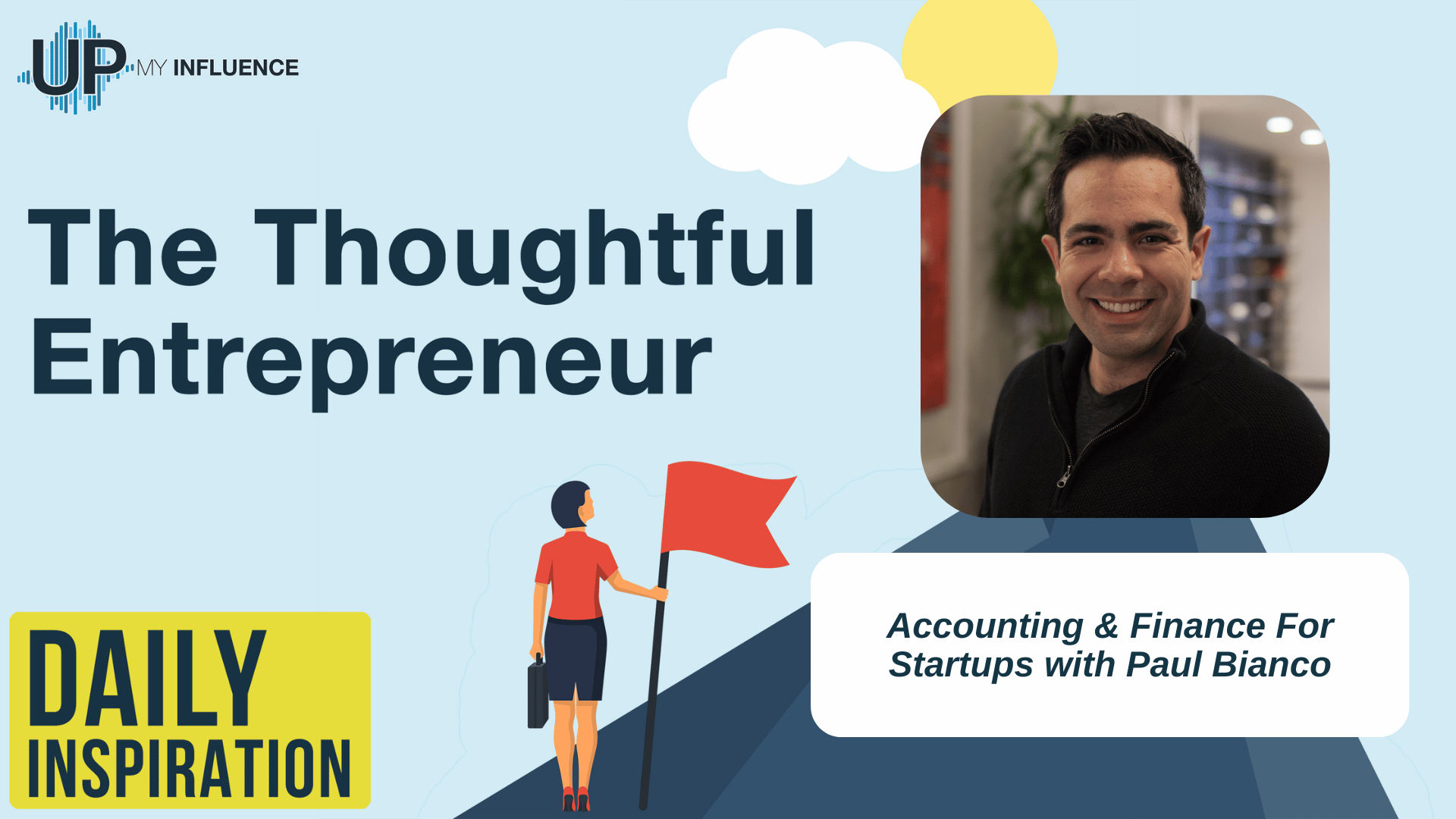THE THOUGHTFUL ENTREPRENEUR PODCAST
In this episode of the Thoughtful Entrepreneur, your host Josh Elledge speaks with the CEO of Graphite Financial, Paul Bianco.

Paul Bianco, founder and CEO of Graphite Financial, discussed the financial challenges and prospects for early-stage companies, startups, and SMEs. He highlighted critical insights into finance and accounting support for emerging businesses.
Graphite Financial provides vital services to companies facing the complex financial landscape of the business world. They offer extensive services, from basic bookkeeping to advanced financial reporting, as a complete substitute or complement to internal accounting teams.
Paul focused on the indicators of a company's readiness to enhance its financial leadership. He advised company founders to understand what potential buyers might look for in their financial records and emphasized the importance of proactive financial planning.
Key Points from the Episode:
- Services provided by Graphite Financial for early-stage companies and SMEs
- Target clients of Graphite Financial
- Importance of being less reliant on outside capital markets
- Indicators for upgrading financial leadership role
- Common misconceptions and myths about financial models and budgeting
- Considerations for hiring a financial service provider
- Tiered services offered by Graphite Financial
- Invitation to visit the Graphite Financial website and resources available
- Insights into financial and accounting considerations for early-stage and SME companies
About Paul Bianco:
Paul Bianco embarked on his entrepreneurial journey at the tender age of nineteen, setting the stage for a career defined by innovation and the relentless pursuit of growth. His early foray into the world of business during his college days involved the creation of an affiliate marketing website, a venture that saw him blending online strategies with grassroots efforts—distributing thousands of flyers across his campus to boost traffic. This blend of digital savvy and real-world hustle marked the beginning of a career that would later see him pivot from a promising start at Protiviti, a prestigious consulting firm, to the dynamic and challenging realm of venture capital. At FF Venture Capital, Paul dedicated years to mastering the intricacies of VC funding, a period that refined his business skills and shaped his future entrepreneurial ethos.
Despite the allure of venture capital and its manifold benefits for startups, Paul’s experiences made him realize the path he wished to carve for his ventures. In 2016, he founded Graphite, a groundbreaking platform offering fractional finance and accounting services to support founders in managing their finances efficiently without resorting to external investment. This decision underscored his commitment to sustainable, self-fueled growth—a philosophy that set Graphite apart in a landscape dominated by VC-backed startups. Under Bianco’s leadership, Graphite democratized access to premier financial services for entrepreneurs and achieved a landmark merger with CPM Advisory Group in 2023. This milestone heralds a new chapter for Paul, who is poised to lead the combined entity toward realizing its vision of enabling early and growth-stage companies to attain financial excellence with minimal overhead.
About Graphite Financial:
Graphite is a cornerstone in the startup ecosystem, offering a comprehensive suite of accounting, finance, and tax services tailored specifically for startups. It stands out as the go-to accounting firm for startups, providing top-notch bookkeeping and Fractional CFO services and industry-specific support, ensuring that startups have clean books, strategic guidance, and support tailored to their unique industry needs. Born from the insights of a venture capital fund, Graphite profoundly understands the challenges and opportunities faced by early-stage companies, aiming to help founders scale their ventures efficiently and sustainably.
Graphite’s success is its team, a dynamic blend of seasoned CFOs, accountants, entrepreneurs, and operators who bring a wealth of experience and passion. This collective expertise allows Graphite to serve startups at any stage of their journey, offering services that range from strategic projects to comprehensive finance team support. Whether managing day-to-day accounting and bookkeeping, navigating the complexities of financial modeling, or providing crucial fundraising support, Graphite offers a holistic approach to economic management. With a focus on high-growth startups, Graphite leverages its VC roots to deliver a unique perspective that benefits its clients from seed stage to exit, ensuring they are well-equipped for sustainable growth and success.
Tweetable Moments:
09:23 – “Start slow. I'm a huge believer in that, and I did this myself. For our first 100 customers, I did every sale personally.”
Links Mentioned in this Episode:
Want to learn more? Check out Graphite’s website at
https://graphitefinancial.com/
Check out Graphite on LinkedIn at
https://www.linkedin.com/company/graphitefinancial/
Check out Paul Bianco on LinkedIn at
https://www.linkedin.com/in/paullbianco/
More from UpMyInfluence:
We are actively booking guests for our The Thoughtful Entrepreneur. Schedule HERE.
Are you a 6-figure consultant? I’ve got high-level intros for you. Learn more here.
What is your #1 Lead Generation BLOCKER? Take my free quiz here.
Want to learn more about all the podcasts managed by UpMyInfluence? Opt in here.

